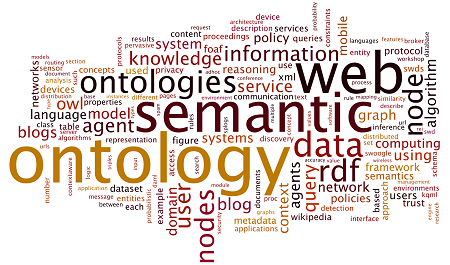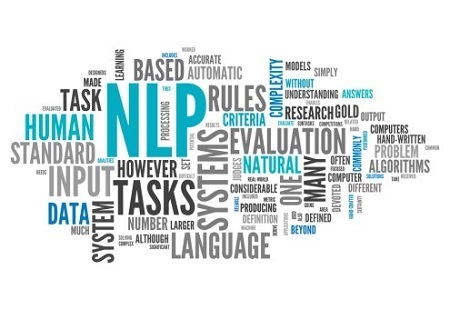
Is Contextual Search the Future of Enterprise Search?
What is contextual search? Contextual search is defined as a search technology that focuses on the context of the query as well as the intent of the user in order to fetch the most relevant set of results. It is different from the traditional keyword based search technology that only focuses on keyword matching when fetching results. Now, the next question that comes up is whether contextual search is more efficient than the traditional approach.
Before we answer this, we should understand that the relatively simpler keyword based approach works well with content that is non-optimized with keywords and the content on the web is a good example of this. Web content is structured and optimized with all the relevant keywords for a given niche. So, with a keyword based approach, one is able to get some pretty relevant results, which serves the purpose of the average user. Now, enterprise search is very much different from content on the web, because enterprise data is largely raw and unstructured. Hence, an approach that works by matching keywords falls short when it comes to enterprise data. This is the reason a new age enterprise search platform like 3RDi Search is designed to use contextual search to provide results to users.
Why Contextual Search Makes a Difference
To understand the implications of contextual search, let us take a small example:
An Example:
Let's consider that someone is looking for the presence of the company name 'The Digital Group' in a certain chunk of unstructured data. If he's using the traditional approach, he'll be presented with a long list of results that contain not just the company name, but also the word 'digital'. So, he's left with no other option than to go through the entire set of results to find out what he's looking for.
The fact that he has to go through all the search results to figure out which ones are the most relevant, means the search process is of little use. Contextual search is a concept that is useful, as it uses text mining technologies to fetch the results that are the most relevant to the context of the user's query. In the above example, the contextual search engine will be intelligent enough to understand that the user's query has the word 'Digital' in the context of the company name, and it will show only the results that are relevant to the said context. This helps the user find the most relevant data in the least time and makes the search process faster and more efficient.
Parameters Used in Contextual Search
There are many parameters that a contextual search engine takes into account, in order to make the results relevant to the user's query. Here we shall look 3 of the key ones.
a] Geographical Location:
The context of a query might vary with the location of the user, and the contextual search engine understands this. It also takes into consideration the fact that the context of the same query might be different for users in different countries/cultures. The contextual engine analyzes the query with respect to the vocabulary of the location where the user is, and provides the results accordingly.
b] Search History of the User:
The search history or the general search behavior of the user holds many clues about what he/she might be looking for. A contextual search engine takes into account the search history of the user in order to figure out the most relevant results. What are the type of results the user has found useful in the past? The search engine tries to find out in order to provide the user relevant results every time. So, you see that the contextual search engine is all about creating a personalized search experience for the user.
c] User Attributes:
Every user is different and in addition to the user behavior, what the contextual search engine takes into account are the user attributes. Factors like the age of the user and professional background, can influence the context of the query the user types in. Let’s look at an example.
An Example:
Let's say a nutritionist and an IT professional types in the word 'Apple'. In such a scenario, the contextual search engine will show results pertaining to the fruit to the former and results pertaining to Apple Inc. to the latter.
This is just a small example and there are many instances of terms that hold a different meaning for different professionals. A contextual search engine takes all this nuances into account.
Technologies Used in Contextual Search
We have seen that contextual search is designed to offer the user the experience of a personalized search experience like never before. But, is all this possible and what are the technologies that fuel a contextual search engine? Let's take a look.
a] Semantic Technology

Source: https://www.3rdisearch.com/
Semantic technology or semantics is a text mining technology that derives the meaning of a search query in order to fetch the most relevant results. The use of semantic search technology enables contextual search engines to include not just the direct results but also their synonyms. This broadens the search results and at the same time, ensures the user does not miss out on relevant results.
b] Artificial Intelligence

Source: https://bit.ly/2J3gNkB
Artificial intelligence (AI) is the technology that helps the contextual search engine to monitor the search behavior of each individual user and then draw accurate conclusions about what they're probably looking for. It is the AI technology that makes contextual search engine intelligent as it analyzes the various user attributes and fetches the results accordingly.
c] Natural Language Processing

Source: https://bit.ly/2VfNjXo
Natural language processing (NLP) is the technology that helps machines understand the language used by humans. Contextual search engines use NLP to empower users to search using conversational language and still get the most relevant results. With NLP at work, users can have their query in their native language as well.
Why Contextual Search is the Future
Now that we have understood how contextual search works, let’s try to figure out the major reasons why it is the future of enterprise search:
a) Armed with semantics, a contextual search engine analyzes even the most complex unstructured data to extract named entities, such as names of people, organizations, locations, and more. This is highly effective in categorizing random texts into categories based on different contexts.
b) Contextual search helps organizations find the most relevant information from unstructured data, which means it helps organizations derive value from the organization data.
c) With the most relevant, and even personalized, results presented to the user, contextual search saves the time and efforts of the user to a significant extent.
d) With a contextual search engine, it becomes possible for enterprises to provide users with relevant information even before they look for it, through personalized feeds or notifications. This makes the information find the user before he/she even looks for it.
The Final Word:
So, we have seen that contextual search brings in a lot of possibilities to the realm of enterprise search, thus taking the search experience to an all new level. And the advancements in the field of AI, Semantics and NLP will only bring exciting possibilities in the future. What has been your experience with contextual search? Do you agree that contextual search is inevitable to creating an enhanced search experience for the users? Share your thoughts in the comment box below.